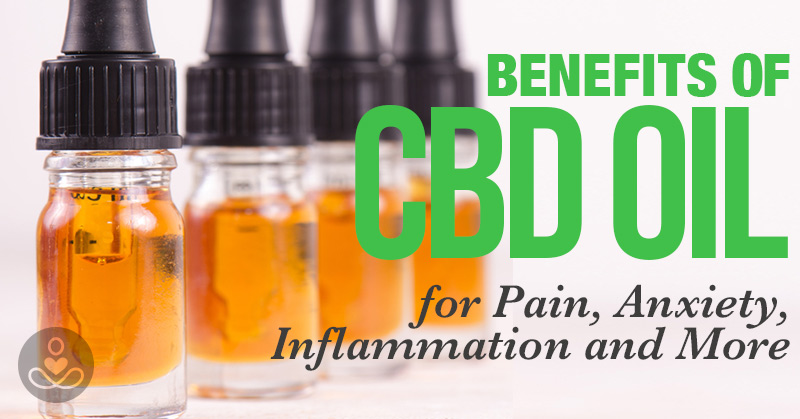Cannabis has always been a controversial topic. A lot of people associate it with recreational use but it can also be a natural remedy for pain, aging, and mental disorders. CBD oil is a chemical found in cannabis, and has gained significant attention for its potential health benefits. It is not psychoactive, so it can’t get you high as it has low levels of THC. It can be used as a natural and safe way to treat a lot of different health problems. From alleviating pain to reducing anxiety, the scope of CBD’s effects is broad.
1. Pain Relief

One of the most well-documented uses of CBD oil is for pain management. Studies suggest that CBD interacts with the body’s endocannabinoid system, which helps regulate pain and inflammation.1 A 2021 study found that CBD could significantly reduce pain in conditions such as fibromyalgia and arthritis.
Read More: The Benefits of CBD for People with Insomnia and Other Sleep Disorders
2. Anxiety and Depression

CBD has shown promise in reducing symptoms of anxiety and depression. It appears to affect the brain’s receptors for serotonin, a neurotransmitter that regulates mood and social behavior. A 2020 review highlighted CBD’s potential in alleviating anxiety-related disorders and improving overall mood.2
3. Anti-inflammatory Properties

CBD’s anti-inflammatory properties are well-documented. By interacting with the body’s TRPV receptors, CBD can reduce inflammation, making it a potential treatment for conditions such as rheumatoid arthritis and inflammatory bowel disease.3
4. Neuroprotective Benefits

Research indicates that CBD may offer neuroprotective benefits, particularly for neurological disorders like epilepsy and multiple sclerosis. The FDA has even approved a CBD-based drug, Epidiolex, for treating severe forms of epilepsy.
5. Cancer-related Symptoms

CBD may help alleviate symptoms related to cancer and its treatment, such as nausea, vomiting, and pain. Some studies suggest that CBD can reduce chemotherapy-induced nausea and improve appetite in cancer patients.4
6. Heart Health

Preliminary research suggests that CBD may benefit heart health by reducing blood pressure and improving arterial function. A 2020 study found that CBD significantly reduced blood pressure in healthy adults subjected to stress tests.5
Read More: Marijuana-Infused Gum for Digestive Pain Relief: Would you chew some?
7. Improved Sleep and Insomnia Relief

Many people use CBD to improve sleep quality and treat insomnia. A 2024 study indicated that CBD might help improve sleep by reducing nighttime awakenings and increasing overall sleep duration.6 Another survey found that CBD users experienced better sleep and felt more rested.
8. Skin Health

CBD may also benefit skin health. It has been shown to reduce sebum production and possess anti-inflammatory properties, which can help in treating acne and other skin conditions. Some studies also suggest that CBD may have antibacterial and antifungal properties.
9. Addiction and Substance Abuse

CBD has shown promise in treating addiction and substance abuse disorders. A 2019 study found that CBD reduced cue-induced cravings and anxiety in individuals recovering from heroin addiction.7 Another study indicated that CBD could help reduce cannabis use in individuals struggling with cannabis use disorder.
10. Epilepsy and Seizure Disorders

CBD is conclusively proven to help treat certain types of epilepsy. The FDA-approved drug Epidiolex, which contains CBD, has been shown to significantly reduce seizures in patients with Lennox-Gastaut syndrome and Dravet syndrome.
Potential Side Effects

While CBD is generally well-tolerated, it can cause some side effects, including:
- Fatigue
- Diarrhea
- Nausea and vomiting
- Decreased appetite
- Weight changes
These side effects are more likely at higher doses and often diminish with time. However, in rare cases, CBD can cause liver enzyme elevations, and there may be a risk of increased suicidal thoughts or behaviors.
When to Consult a Healthcare Provider

It is crucial to consult a healthcare provider before starting CBD, especially if you are taking other medications or have underlying health conditions. CBD can interact with certain medications, such as:
- Anti-seizure medications
- Antidepressants
- Sedatives
- Blood thinners like warfarin
- Caffeine
Conclusion

CBD oil offers a wide range of potential health benefits, from pain relief to improved heart health. However, it is essential to be aware of the possible side effects and interactions with other medications. Always consult with a healthcare provider to determine the best approach for your individual needs.
Read More: Why Marijuana Isn’t Right for Everyone
Sources
- “What are the Benefits of CBD Oil? Uses, Side Effects, and How to Take It.” GoodRx. Stacia Woodcock, PharmD. May 24, 2023.
- “Antioxidative and Anti-Inflammatory Properties of Cannabidiol.” NCBI. Sinemyiz Atalay, Iwona Jarocka-Karpowicz, and Elzbieta Skrzydlewska. December 25, 2019.
- “What Are the Health Benefits of CBD—Cannabidiol?” Health. Kathleen Felton. December 17, 2023.
- “Therapeutic Applications of Cannabinoids in Cardiomyopathy and Heart Failure.” NCBI. J. A. Garza-Cervantes, M. Ramos-González, Lozano, C. Jerjes-Sánchez, and G. García-Rivas. October 27, 2020.
- “10 Benefits of CBD Oil Based on Research.” Observer. May 13, 2024.
- “Cannabinoid therapies in the management of sleep disorders: A systematic review of preclinical and clinical studies.” Pubmed. Anastasia S Suraev , Nathaniel S Marshall, Ryan Vandrey, Danielle McCartney, Melissa J Benson, Iain S McGregor, Ronald R Grunstein and Camilla M Hoyos. October 2020.
- “6 Health Benefits of CBD Oil — and a Look at Side Effects.” Healthline. Jillian Kubala, MS, RD. June 30, 2023.

